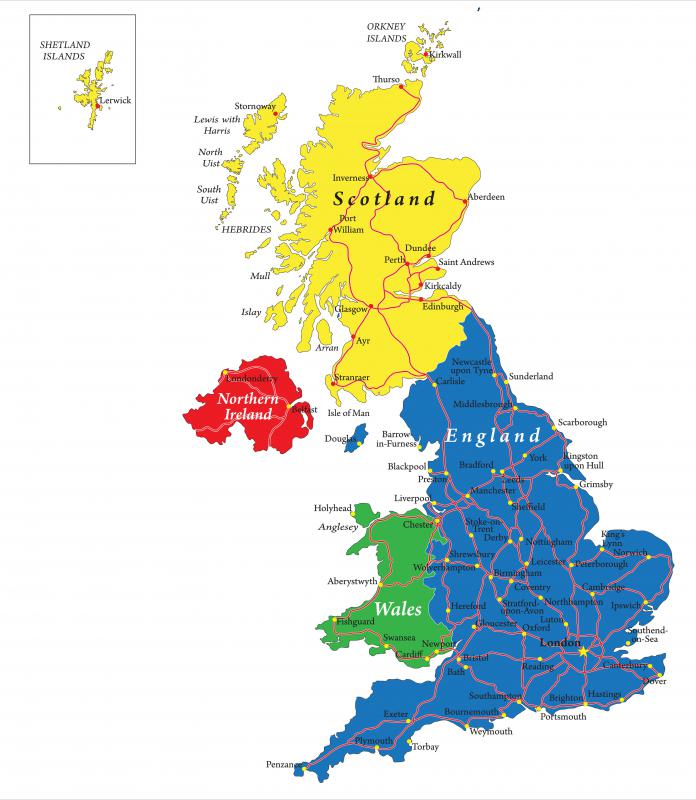At WiseGEEK, we're committed to delivering accurate, trustworthy information. Our expert-authored content is rigorously fact-checked and sourced from credible authorities. Discover how we uphold the highest standards in providing you with reliable knowledge.
What does "Promulgation" Mean?
The word promulgation comes from the Latin word promulgare, which means "to publish." In law, promulgation, also known as enactment, is the act of officially and publicly announcing a new law, and this formal proclamation is what makes the law come into effect. Laws are promulgated to make both citizens and authorities officially aware of new laws. This type of law announcement is often done by the head of state or by the legislative assembly, and can be done either orally or in writing, usually in print but sometimes on official websites. According to some law philosophies, promulgation is the essence of law, meaning it is the most important part of lawmaking, while others think that the act of passing a law in the legislative assembly carries more weight.
How promulgation is carried out varies depending on the country, its constitution and conventions, and the specific jurisdiction. The type of law involved can also make a difference. An administrative law relates to how the government and its various administrative agencies operate, and includes rules and regulations implemented and enforced by such agencies. A statutory law, also called a statute or legislation, is almost always made by a legislative assembly and commonly applies to a country, region, or city. Usually, both kinds of laws require promulgation, though the procedure can differ.

The first step in the promulgation of a new law is usually that the head of state officially announces and accepts the law, commonly by formally signing it. In the United Kingdom, which is a monarchy, the monarch promulgates new laws. In Germany, a republic, the same duty is performed by the president. The next step in promulgation is often that the new law is published in an official publication of some kind. For example, in Canada, laws are published in the Canadian government's official journal, the Canada Gazette. In the United States, administrative laws are usually published in the Federal Register.

The act of promulgating a law is a formality in most countries, and the actual power to accept or reject laws rests solely with the legislative assembly. In Japan, for example, the emperor has to promulgate all laws passed by the country's legislative assembly. However, in some countries, the authority responsible for promulgating laws can decline to do so. This is the case in France, where the president promulgates laws but can ask the legislative assembly to reconsider a law, though this request can only be made once.
AS FEATURED ON:
AS FEATURED ON:













Discussion Comments
@Azuza - You're right, the average person isn't that concerned about new laws. I kind of feel like any law that is really important or has wide ranging effect is discussed on the news.
Still, it sounds like the point of promulgation is that it actually causes the law to come into effect. I think in the US the law becomes effective when it's signed into law by the president. Publishing it is just the formal announcement of the law, not what makes it effective.
@nony - I remember "Schoolhouse Rock" from when I was in school too. However, I've never heard of the Federal Register.
Either way though, I think it's good that the laws are promulgated. The average person is pretty uninformed about new laws, but at least the new laws are out there for people who care enough to look!
@miriam98 - I too have heard promulgation used in a more casual sense but I would prefer to stick with its legal sense, that of the promulgation process in law.
More importantly, I believe that we need more education in how bills actually become law in the United States. When I was a kid I used to watch these “Schoolhouse Rock” educational cartoons that explained the process from beginning to end.
Obviously the word promulgation was not used, and I don’t think that there was any reference to a federal register, but still it explained the basic process.
I don’t know if these cartoons are still around but I think we need more education in the legal process of creating laws. Someone has described it as sausage making, especially when the laws deal with politically charged issues.
However ugly it may seem, it's still necessary for an informed electorate in my opinion.
Actually I think that the promulgated definition has some broader application as well. For example, I’ve heard it mentioned in religious circles, as when someone says, “Someone has promulgated a new doctrine.” Usually the context is negative, but it doesn’t have to be.
I think that used this way it’s still similar to its legal sense, because a doctrine in religion has more or less the force of law I would guess.
At other times I hear people use promulgate in a sentence where they really mean to advance an idea, religious, legal or otherwise.
I don’t know if this is a misuse of the term, and if the speakers are being overly ostentatious in their use of the word. However, I have heard it used in the vernacular.
Post your comments